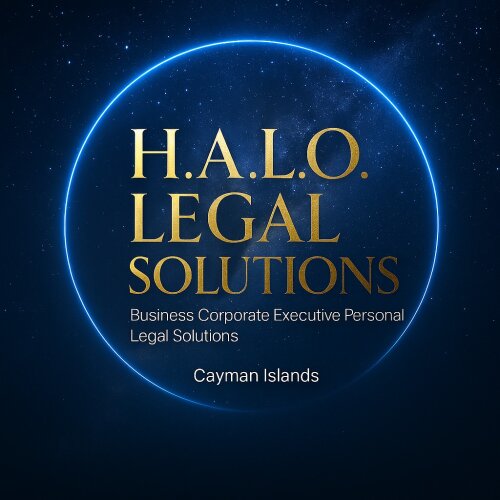Best Financial Services Regulation Lawyers in Cayman Islands
Share your needs with us, get contacted by law firms.
Free. Takes 2 min.
Or refine your search by selecting a city:
List of the best lawyers in Cayman Islands
About Financial Services Regulation Law in Cayman Islands
The Cayman Islands is a premier global financial hub with a sophisticated framework for financial services regulation. This jurisdiction is recognized for its robust regulatory environment, which seeks to balance facilitating business growth while ensuring compliance and preventing financial crime. The Cayman Islands Monetary Authority (CIMA) is the main regulatory body, overseeing banking, insurance, investment funds, and securities. It ensures adherence to both local laws and international standards, such as those set by the Financial Action Task Force (FATF).
Why You May Need a Lawyer
There are several scenarios where engaging a legal professional in financial services regulation becomes crucial. Whether you are setting up a new financial entity, navigating compliance requirements, or facing regulatory disputes, expert legal advice can be invaluable. Legal counsel is also essential when dealing with mergers and acquisitions, ensuring that due diligence and regulatory approvals are adequately managed. Furthermore, changes in regulatory frameworks can impact your business operations, necessitating professional guidance to adapt effectively.
Local Laws Overview
The Cayman Islands has a comprehensive set of laws governing financial services. Key legislative texts include the Banks and Trust Companies Law, the Mutual Funds Law, and the Securities Investment Business Law. These laws are supported by detailed regulatory policies and guidance notes issued by CIMA, which provide clarity on compliance expectations and operational standards. The Cayman Islands has also implemented robust anti-money laundering and counter-terrorism financing laws, reflecting its commitment to maintaining a reputable and secure financial environment.
Frequently Asked Questions
What is CIMA, and what is its role?
The Cayman Islands Monetary Authority (CIMA) is the primary financial services regulator that oversees and ensures compliance across banking, insurance, mutual funds, and securities sectors in the Cayman Islands.
How do I establish a financial services entity in Cayman Islands?
Establishing a financial services entity involves registering with CIMA and complying with specific sector laws such as the Banks and Trust Companies Law, undergoing due diligence checks, and fulfilling capital and record-keeping requirements.
What are the penalties for non-compliance with financial regulations?
Penalties for non-compliance can include fines, restrictions on operations, or revocation of licenses. In severe cases, legal proceedings may be instituted against the entity or individuals involved.
Are there any recent updates to financial services regulation I should be aware of?
The regulatory framework is continually evolving to align with international standards, so it's essential to stay informed through CIMA updates, legal notices, and relevant amendments to laws.
What are the key compliance requirements for mutual funds?
Mutual funds must adhere to the Mutual Funds Law, which includes registration with CIMA, maintenance of proper financial records, independent audit requirements, and adherence to anti-money laundering (AML) regulations.
How can a lawyer help with an investigation by the regulator?
A lawyer can advise on how to appropriately respond to regulatory inquiries, ensure that your rights are protected throughout the process, and help prepare documentation and defense strategies if necessary.
What measures are in place to combat money laundering in Cayman Islands?
The Anti-Money Laundering Regulations require financial service providers to implement customer due diligence measures, monitor transactions, and report suspicious activities, ensuring compliance with international AML standards.
Do I need a license to offer investment services?
Yes, offering investment services typically requires obtaining a license under the Securities Investment Business Law and complying with CIMA's regulatory framework.
Can foreign companies provide financial services in Cayman Islands?
Foreign companies can provide financial services if they meet local licensing requirements, adhere to regulatory standards, and establish a local operational presence, depending on the services offered.
What is the process of challenging a regulatory decision?
Challenging a regulatory decision involves legal appeals procedures wherein you need expert legal advice to navigate the process, which includes submitting formal appeals and representation in hearings if required.
Additional Resources
For more information and resources, consider reaching out to the following organizations and bodies:
- The Cayman Islands Monetary Authority (CIMA)
- The Cayman Finance association, which represents the financial services industry
- The Cayman Islands Legal Practitioners Association for referrals to specialized lawyers
- Government websites providing legislative and regulatory updates
Next Steps
If you require legal assistance in financial services regulation, consider the following steps:
- Identify the specific legal issue or area where you need support.
- Research and select a qualified lawyer or law firm specializing in Cayman Islands financial services regulation.
- Consult with your chosen legal professional to understand your rights, obligations, and the potential outcomes of your situation.
- Maintain ongoing communication with your legal advisor to effectively address any regulatory changes or legal challenges.
Lawzana helps you find the best lawyers and law firms in Cayman Islands through a curated and pre-screened list of qualified legal professionals. Our platform offers rankings and detailed profiles of attorneys and law firms, allowing you to compare based on practice areas, including Financial Services Regulation, experience, and client feedback.
Each profile includes a description of the firm's areas of practice, client reviews, team members and partners, year of establishment, spoken languages, office locations, contact information, social media presence, and any published articles or resources. Most firms on our platform speak English and are experienced in both local and international legal matters.
Get a quote from top-rated law firms in Cayman Islands — quickly, securely, and without unnecessary hassle.
Disclaimer:
The information provided on this page is for general informational purposes only and does not constitute legal advice. While we strive to ensure the accuracy and relevance of the content, legal information may change over time, and interpretations of the law can vary. You should always consult with a qualified legal professional for advice specific to your situation.
We disclaim all liability for actions taken or not taken based on the content of this page. If you believe any information is incorrect or outdated, please contact us, and we will review and update it where appropriate.
Browse financial services regulation law firms by city in Cayman Islands
Refine your search by selecting a city.
















